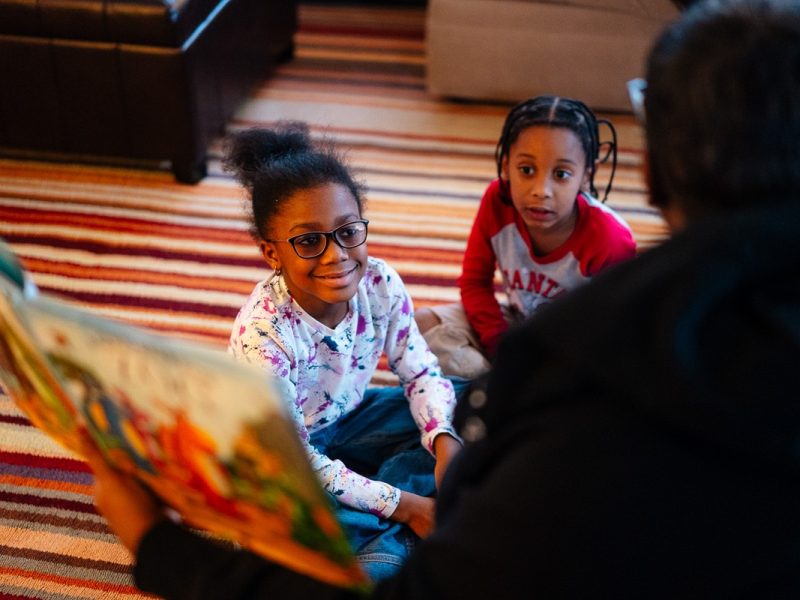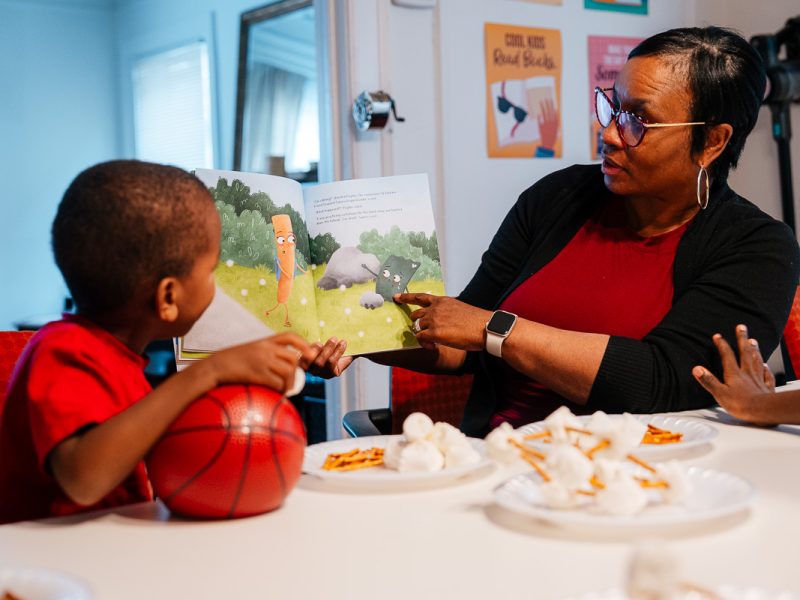Child care tax credits and Proposal 3: Parents want to know where Michigan candidates stand
Parents and childcare advocates showed up at a virtual forum recently to ask local candidates running for Michigan’s State House this November about the issues on families’ minds. Check out what the folks looking for your vote had to say about child tax credits on a state level and reproductive rights.

With November’s election coming quickly, metro Detroit parents are thinking deeply about who’s going to support the issues they find most important. Many showed up recently to a virtual candidate forum where they could ask Michigan House candidates how they stand on topics like affordable child care and universal preschool, living wages for early education workers, public school funding, and equal access to mental health supports for young children. They also asked about the expansion of child tax credits and the three proposals on Michigan’s ballot.
Candidates in attendance at the Detroit Champions for Hope event represented eight different House districts, all touching at least a portion of Detroit. Some are seeking re-election, while others are running for the first time. We’ve listed them here according to the district they hope to represent in Michigan’s newly drawn map released earlier this year by the Michigan Independent Citizens Redistricting Commission (MICRC).
Though not all candidates stayed for the entire forum, in attendance was Rep. Tyrone Carter D- (District 1), Rep. Regina Weiss, D- (District 6), Charles Villerot, R- (District 6), Mike McFall, D- (District 8), Rob Noble, R- (District 8), Natalie Price D- (District 5), Rep. Abraham Aiyash D- (District 9), and Michele Lundgren R- (District 9). Here’s what they said about child tax credits and Proposal 3.
Tommara Grice, of Detroit Champion’s for Hope, shared with the candidates how valuable the child tax credit was to her household throughout the pandemic. “It was a great assistance and help to families, especially mine, because I’m a mom of four,” she said.
Through the American Rescue Plan Act, President Biden expanded the child tax credit to provide historic tax relief to the majority of U.S. families. The annual benefit, which caregivers could elect to receive in one lump sum or spread over months, bolstered households with $3,600 for kids under 6 and $3,000 for those ages 6 to 17. Reporting shows Michigan families who received the average monthly payments of $455, spent these on food, rent, and bills.
Question: How do you feel about the child tax credit being available in some capacity on the state-level in the state of Michigan? I see it being used in other states and it seems to be working great.
Rob Noble: “I agree. Considering where our economy is, and it doesn’t seem to be improving a bunch, yeah, we have to help. There’s no doubt about it,” he said. “People need to eat, people need a roof over their head, they need to pay their utility bills, and if a child tax credit helps, by all means. That’s number one. Take care of the family, we’ll deal with it later. We’ll have to figure it out, but we have to take care of the people first.”
Michele Lundgren: “If I had four kids today, I would definitely want a little bit of help every now and then. A tax credit for children and their families would probably benefit everyone, so I am definitely for viewing that into any kind of legislation that is necessary to bring that back to the state of Michigan.”
Regina Weiss: “Yes, I’m very supportive of making sure that we’re doing everything we can to support families, working families. I’m also supportive of expanding the earned income tax credit to help out working families as well.”
Charles Villerot: “I would support tax credits for people who have children at home.”
Mike McFall: “I’m in favor of child tax credits, but I think we need to look at this not just for children. There are families who are nontraditional families as well, where you may be taking care of a parent, an elderly parent, or even a sibling with a disability,” he said. “I work for a national nonprofit that works with individuals with cognitive issues, and a lot of siblings are taking care of other siblings. I feel like the credit, while I agree it should be for children, I think it should be expanded to cover other families as well.”
Councilwoman Price: “As all of us who have been full-time caregivers know, the cost of caregiving is overwhelming in so many ways. If there’s anything we can do at the state to help provide for our working families and our children, as simple as a tax credit, and more expansive in other areas as well — healthcare assistance — yes, let’s do it. Let’s get it done.”
Proposal 3: Right to Reproductive Freedom Initiative
The second question of the forum looked at the three state-wide proposals that will be decided by voters in Michigan this November, including Proposal 3: Right to Reproductive Freedom Initiative. A “yes” vote supports providing a state constitutional right to reproductive freedom, which is defined as “the right to make and effectuate decisions about all matters relating to pregnancy, including but not limited to prenatal care, childbirth, postpartum care, contraception, sterilization, abortion care, miscarriage management, and infertility care.”
When asked whether they support or reject Proposal 3, here’s what the candidates said:
Charles Villerot: “I am pro-life, period. I think that they should put it on the ballot. And the way the ballot number three, I think they want to have abortions right up to, and including, the day of birth. No, absolutely not. So, I’m pro-life.”
Rep McFall: “People should be making their own reproductive decisions, not the government, so I’m in favor of number three.”
Councilwoman Price: “This is a way to restore the protections that we had under Roe vs. Wade in Michigan. We need to absolutely restore Roe in Michigan. It is not proposing anything above and beyond that. I am in full support because I do not think legislatures should be involved in that very personal decision between a childbearing person and their provider.”
Rob Noble: “I am pro-life, with exceptions, in my own mind, but I don’t believe that government, democrats or republicans, should be voting on this whatsoever. It should be on the ballot and let the people decide what they want to do,” he said.
“Now, am I a fan of Proposal 3? No, and I’m going to tell you why. It’s the wording of the proposal. I don’t think it’s good for women, because the words do not say woman, or women, it says individual, and that includes males and females. So a man’s rights are also going to be coming into play with this… I just don’t think it was written correctly. I think women should decide what they want to do, but it shouldn’t all fall onto the man on the other side of it either.”
Rep. Weiss: “I’m incredibly supportive of it. Just a quick comment on the language — all that Proposal 3 really does is restore the rights we already had prior to Roe being overturned in the state of Michigan,” she said. “That would just guarantee that kind of access to reproductive rights, to abortion access, to other reproductive services, as well as contraception and other things that women desperately need. In terms of the language, why it was not gendered, is because you can have a transgender person become pregnant who does not identify as female, so that language is meant to just be more inclusive.”
Michele Lundgren: “I agree on abortion up to a certain time limit. I would like things like that to be addressed. I think all women — you know, sometimes things happen, and sometimes you can’t afford a baby, or don’t want a baby, or what have you. Even if those are really insensitive, it still counts,” she said. “So I will vote for Prop 3, but I wish that different issues could be addressed.”
Make sure to check out the rest of this series to hear how these candidates responded to more questions from parents around early child care and education. This community conversation has been edited for clarity and brevity.
This entry is part of our Early Education Matters series, exploring the state of early education and childhood care in our region. Through the generous support of the Southeast Michigan Early Childhood Funders Collaborative (SEMI ECFC), we’ll be reporting on what parents and providers are experiencing right now, what’s working and what’s not, and who is uncovering solutions.




